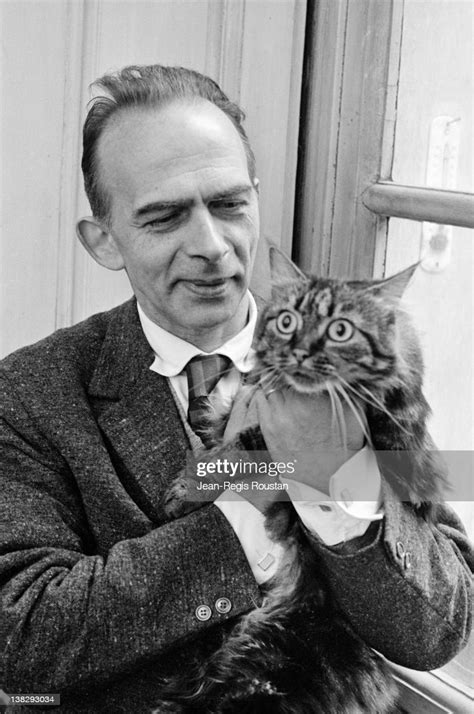A Quote by Elizabeth Gilbert
I have a history of making decisions very quickly about men. I have always fallen in love fast and without measuring risks. I have a tendency not only to see the best in everyone, but to assume that everyone is emotionally capable of reaching his highest potential. I have fallen in love more times than I care to count with the highest potential of a man, rather than with the man himself, and I have hung on to the relationship for a long time (sometimes far too long) waiting for the man to ascend to his own greatness. Many times in romance I have been a victim of my own optimism.
Quote Topics
About
Always
Ascend
Assume
Been
Best
Capable
Care
Count
Decisions
Emotionally
Everyone
Fallen
Far
Fast
Greatness
He Man
Highest
Himself
His
History
Hung
I Care
Long
Long Time
Love
Making
Making Decisions
Man
Many
Measuring
Men
More
More Time
My Own
Only
Optimism
Own
Potential
Quickly
Rather
Reaching
Relationship
Risks
Romance
See
Sometimes
Tendency
Than
Time
Times
Too
Very
Victim
Waiting
Without
Related Quotes
Because, you see, God - whatever anyone chooses to call God - is one's highest conception of the highest possible. And whoever places his highest conception above his own possibility thinks very little of himself and his life. It's a rare gift, you know, to feel reverence for your own life and to want the best, the greatest, the highest possible, here, now, for your very own. To imagine a heaven and then not to dream of it, but to demand it.
Only a great man, believe me, and one whose excellence rises far above human failings, will not allow anything to be stolen from his own span of time, and his life is very long precisely because he has devoted to himself entirely any time that became available. None of it lay uncultivated and idle, none was under another man's control, for guarding it most jealously, he found nothing worth exchanging for his own precious time.
There can be no love so long as there is lust- even a speck of it, as it were, in the heart. None but men of great renunciation, none but mighty giants among men, have a right to that Love Divine. If that highest ideal of love is held out to the masses, it will indirectly tend to stimulate its worldly which dominates the heart of man- for, meditating on love to God by thinking of oneself as His wife or beloved, one would very likely be thinking most of the time of one's own wife- the result is too obvious to point out.
There is a man who exists as one of the most popular objects of leadership, legislation, and quasi-literature in the history of all men. . . . This man, that object of attention, attack, and vast activity, cannot make himself be heard, let alone understood. He has never been listened to. . . . That man is Black and alive in white America where the media of communication do not allow the delivery of his own voice, his own desires, his own rage.
Man—every man—is an end in himself, not a means to the ends of others; he must live for his own sake, neither sacrificing himself to others nor sacrificing others to himself; he must work for his rational self-interest, with the achievement of his own happiness as the highest moral purpose of his life.
There are many more languages than we think: and man betrays himself more often than he desires. How things speak! - but there are very few listeners, so that man can only, as it were, chatter on in the void when he pours out his confessions: he squanders his ‘truths’, as the sun does its light. - Isn’t it rather a pity that the void has no ears?
Once a man recognizes himself as a being surrounded by other beings in this world and begins to respect his life and take it to the highest value, he becomes a thinking being. Then he values other lives and experiences them as part of his own life. With that, his goal is to help everyone take their life to the highest value; anything which limits or destroys a life is evil. That is morality. That is how men are related to the world around them.
From the hindsight of history George Washington seems larger than life, more statuesque than man. Too bad! Washington's greatness as a leader was courage under fire and persistence in the face of obstacles. Yet even he at times doubted himself. But he put those doubts aside and forged ahead, convinced of his noble purpose.
No man is so foolish but may give another good counsel sometimes; and no man is so wise, but may easily err, if he will take no others counsel but his own. But very few men are wise by their own counsel; or learned by their own teaching. For he that was only taught by himself had a fool to his master.
Only when there is a wilderness can man harmonize his inner being with the wavelengths of the earth. When the earth, its products, its creatures, become his concern, man is caught up in a cause greater than his own life and more meaningful. Only when man loses himself in an endeavor of that magnitude does he walk and live with humanity and reverence.
In the ardor of his enthusiasm, a youth set forth in quest of a man of whom he might take counsel as to his future, but after long search and many disappointments, he came near relinquishing the pursuit as hopeless, when suddenly it occurred to him that one must first be a man to find a man, and profiting by this suggestion, he set himself to the work of becoming himself the man he had been seeking so long and fruitlessly.




































